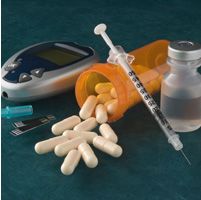Article
Youths with Diabetes: Can Gaming Entertain, Educate and Reward?
Author(s):
Type 1 and 2 diabetes require patients to exercise vigilance and actively manage their conditions.

It is, unfortunately, not surprising that incidences of diabetes mellitus — both Type 1 (T1DM) and Type 2 (T2DM) – are increasing globally. Both forms require patients to exercise vigilance and actively manage their conditions.
Researchers have found that teenagers face cognitive, social, and psychological pressures that can interfere with successful diabetes management. These well-known and common pressures can include a desire for independence from parents, risky behaviors due to unawareness of consequences, fear of social humiliation, and peer pressure. In the face of these challenges, teenagers are likely to discount treatment plans, resulting in suboptimal glycemic control.
Clinicians constantly seek ways to reach young adults.
Challenges associated with developing personality and the resulting health risks underscore the need to find methods to influence teenagers and support their self-management.
One good approach in many age groups is to link what healthcare providers need to the enjoyable activities of patients. Researchers from the Center for Translational Science, Children s National Health System looked at one such activity beloved by teens: gaming.
They investigated “serious” gaming applications (games that are designed to educate and resolve a problem) and their use to assist teens and the implications for regular clinical care. The results were published online in Current Diabetes Report.
According to recent research, 50% of teenagers report playing games on their cell or smart phones and 97% play games on a portable device, computer, or console system. The researchers surveyed studies that examined games used to teach youth about healthy habits and decision-making regarding exercise and food.
Several studies reported that technology intervention (telehealth, mobile technology,
Internet use, or gaming) could improve blood glucose monitoring and diet in teens. Sadly, the effect tends to wear off over time as teens lose interest in the specific game.
The key to an effective gaming program is it should be both a reminder about optimal choices, and provide a reward for making those choices.
The authors noted that there is a need for more studies that examine the impact of games on teens because many studies' positive outcomes may be due to the small sample size or because it can be difficult to connect gaming’s benefits and behavior change. The research team acknowledged that large sample sizes and examination of each game s impact on teens with diabetes are needed.




